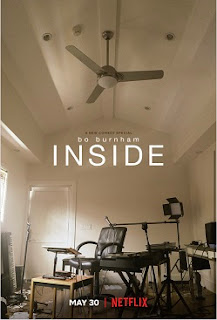More than most movies, how you receive The Matrix Resurrections has a lot to do with your expectations going in. Are you looking for a movie that was worth waiting 18 years for? Are you just looking for a movie that's better than other two Matrix sequels? Are you hoping for a furtherance of the transgender allegories that most of the audience didn't pick up in the original film at the time? Do you just want to see some beloved characters kick ass one more time, under any circumstances?
That's too wide an array of expectations for one movie to satisfy. And so it shouldn't come as a surprise that for me, at least, The Matrix Resurrections was quite a mixed bag. But neither am I surprised by the responses that have been strongly negative, or strongly positive. (Okay, maybe I'm a little surprised at the latter reactions.)
Here's where I'm coming from. I think it will never again be possible for a movie to be as big a visual revolution as the original Matrix. CG can just do so much, so easily, that a modern audience will never react as they did when they saw "bullet time" in 1999. (At least, not until the first time we all get to be inside a fully holographic movie for the first time?) So I think the only way a Matrix sequel could capture some of the "magic" of the original is by presenting ideas that are extraordinary.
The Matrix Resurrections really doesn't do that for me. It's a lot like Back to the Future Part II, in that it wants the audience to revel in their love of the earlier Matrix movies... but without the cool conceit that sequel had of actually going into the previous movie. Most of the first hour is re-staging existing Matrix scenes, presenting meta jokes for a knowing audience to smile at, and even literally replaying footage from the previous films on screens the characters can literally watch. It's all less clever to me than it's presented as, and it really drags.
Eventually, the movie does find some interesting ideas to work with -- actually picking up the end of the third Matrix movie and carrying forward, rather than taking the far easier option of pretending it didn't happen. But still, even as the thoughts at the heart of Resurrections become interesting, the way they're communicated remains weak. The "rules" of this movie are poorly explained (when they're explained at all), lending the entire movie a "making it up as we go along" vibe that, to my mind, none of the previous Matrix films had (not even the two sequels).
But... there's fun to be had too. If you're here because you like watching Keanu Reeves kick ass, you get that. Perhaps even more compelling are scenes in which he pointedly does not kick ass, when the movie acknowledges that this story takes place years later, and Neo (like all of us) has gotten older. The role for Carrie-Anne Moss is more mixed in my mind. You can sort of see as a whole what might have enticed her to return to this character, but at the same time, there's not enough Trinity (and certainly not enough compelling Trinity) in my view.
Some of the new cast members really do stand out for me, though. In particular, I love the casting of both Jonathan Groff and Neil Patrick Harris. Both are out gay actors, and neither is the sort of name Hollywood would think of first (or second) for roles like the ones they're given here. But both of them get to have a ton of fun in this movie, and both leave me thoroughly convinced that they were perfectly cast.
I think for me, The Matrix Resurrections works out to about a C. It's hardly essential viewing. But it does clear the (admittedly low) bar of being a better "end to the franchise" than the third film, The Matrix Revolutions. For most people, it seems like this was not enough of a lure to go to a movie theater in the midst of the far less welcome sequel: the Omicron variant of COVID. But for the next few weeks, while you can watch it in the comfort of your own home on HBO Max? It might be worth it for some?




















